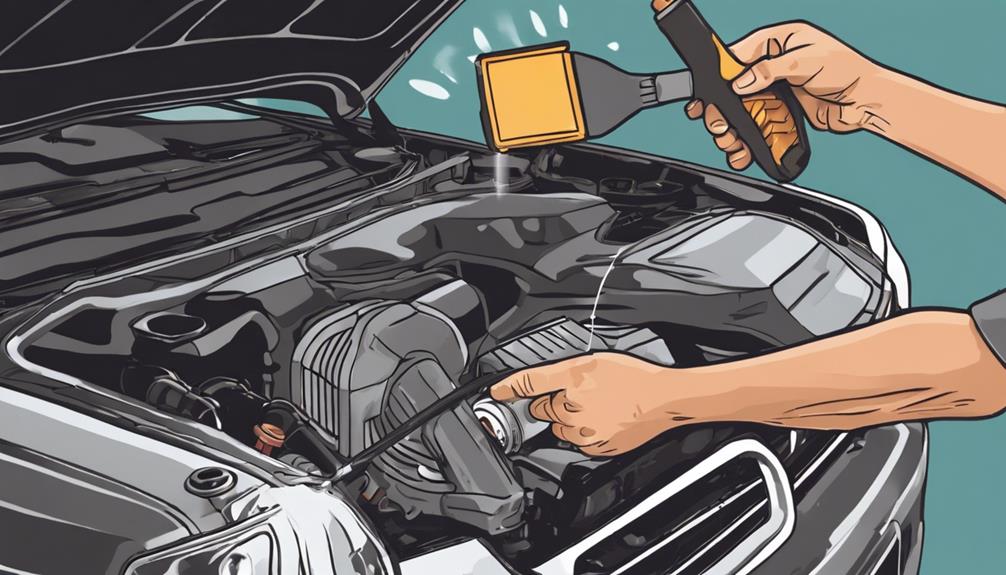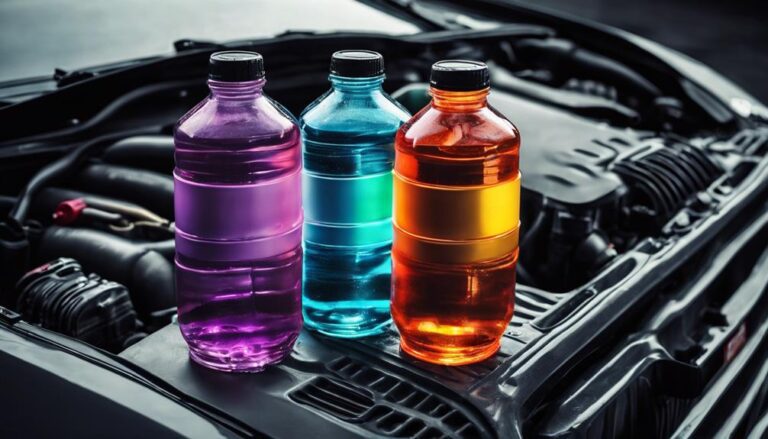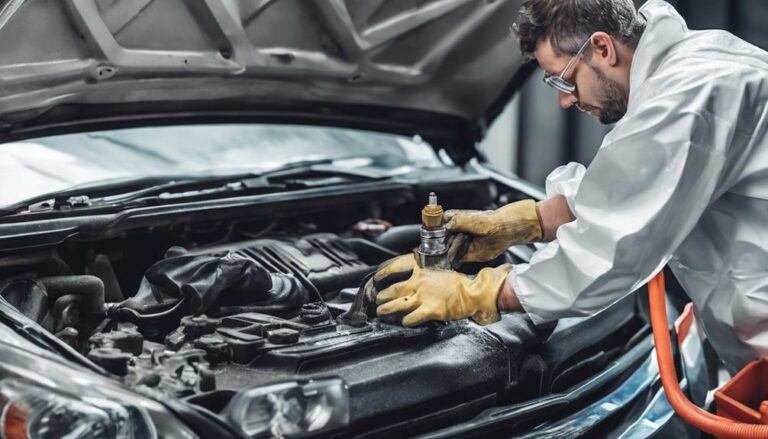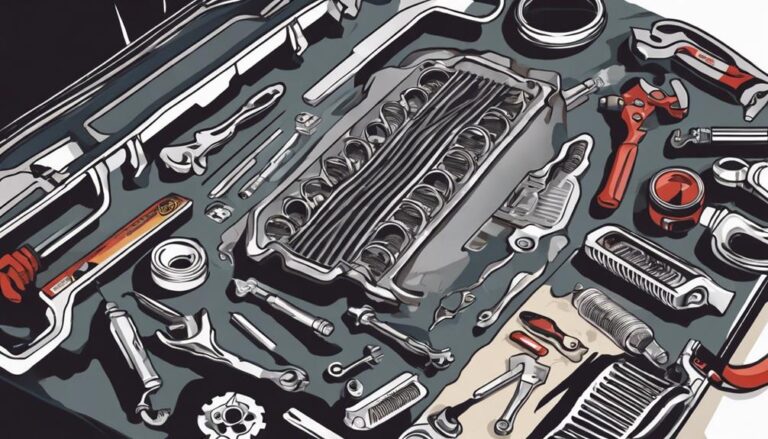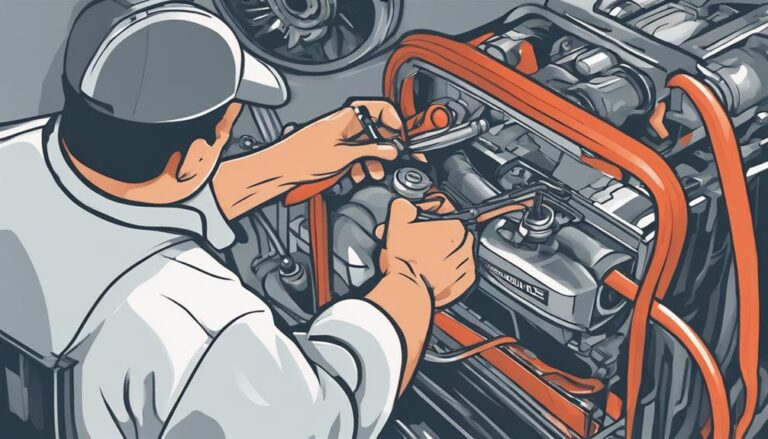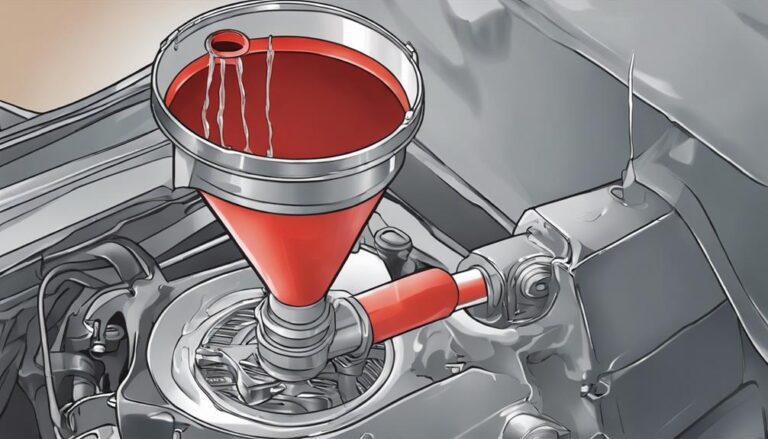Preventing Car Overheating: Essential Maintenance Tips
Keeping your car from overheating is vital to avoid potential engine disasters. By following essential maintenance tips, you can ensure your vehicle runs smoothly and efficiently.
From checking coolant levels to monitoring radiator fan performance, each step plays a crucial role in preventing overheating.
But what happens if your car does overheat? Stay tuned to discover quick actions you can take to address this issue effectively and prevent further damage to your engine.
Key Takeaways
- Regular coolant flushes and radiator inspections prevent car overheating.
- Monitoring temperature gauge and addressing issues promptly is crucial.
- Consistent maintenance checks and flushing the cooling system remove contaminants.
- Professional advice and adherence to manufacturer guidelines help prevent overheating issues.
Common Causes of Car Overheating
Identifying potential causes of car overheating is crucial for maintaining optimal engine performance and preventing costly repairs. Regular maintenance tasks like coolant flushes and radiator inspections are essential to prevent overheating issues. A coolant flush involves removing old coolant and debris from the cooling system, ensuring proper heat transfer and corrosion protection. It helps prevent blockages and ensures the coolant can flow freely to regulate the engine temperature effectively.
Radiator inspection is another critical task. A clogged radiator can impede the cooling process by preventing proper heat dissipation. By inspecting the radiator regularly for any blockages or damages, you can address issues promptly and avoid overheating problems. Additionally, checking for leaks in the cooling system, whether from hoses or gaskets, is vital. Leaks can lead to a loss of coolant, causing the engine to overheat. By maintaining a well-functioning cooling system through these tasks, you can prevent common causes of car overheating and ensure your engine runs smoothly.
Importance of Cooling System Maintenance
Regular maintenance of your vehicle's cooling system is crucial to prevent engine overheating and costly repairs. One essential aspect of cooling system maintenance is performing a coolant flush. Over time, coolant can break down and become less effective at dissipating heat, leading to potential overheating issues. A coolant flush involves draining the old coolant, flushing the system with water to remove any residue, and refilling it with fresh coolant to ensure optimal performance.
Additionally, regular radiator inspection is vital for the proper functioning of your vehicle's cooling system. The radiator plays a key role in dissipating heat from the engine. Inspecting the radiator for any signs of damage, leaks, or blockages can help prevent overheating problems before they occur. It's also crucial to check other cooling system components such as the water pump and hoses during routine maintenance to ensure they're in good working condition.
Signs of Engine Overheating

Keeping an eye out for specific indicators is crucial to promptly recognizing engine overheating issues. When your temperature gauge climbs into the red zone, it's a clear warning sign that your engine is overheating.
Additionally, if you notice steam or smoke coming from the engine bay, it could indicate potential overheating problems. Unusual smells like burning rubber should also raise concerns as they can signal engine overheating.
If you experience an engine misfire or a loss of power, it may be a result of overheating. Pay attention to any dashboard warning lights related to temperature; they're designed to alert you to engine overheating issues.
To conduct proper engine diagnostics, it's essential to be vigilant and look out for these warning indicators to address any overheating problems promptly. Regularly checking these signs can help prevent more severe engine damage and ensure your vehicle runs smoothly.
Tips to Prevent Car Overheating
To prevent car overheating, ensure consistent monitoring and timely maintenance of coolant levels is essential. Regularly check your coolant levels and top up when necessary to keep your engine running at the right temperature.
Additionally, scheduling routine maintenance checks is crucial to ensure that your cooling system is functioning optimally. Consider performing a cooling system flush periodically to remove any buildup or contaminants that could impede the system's efficiency. It's also important to inspect your radiator regularly for any signs of damage or blockages that could lead to overheating.
Monitoring your temperature gauge while driving is a proactive way to catch any early signs of overheating before they escalate. Avoid driving in extreme conditions that can strain your engine and lead to overheating issues.
Professional Advice for Cooling System Care
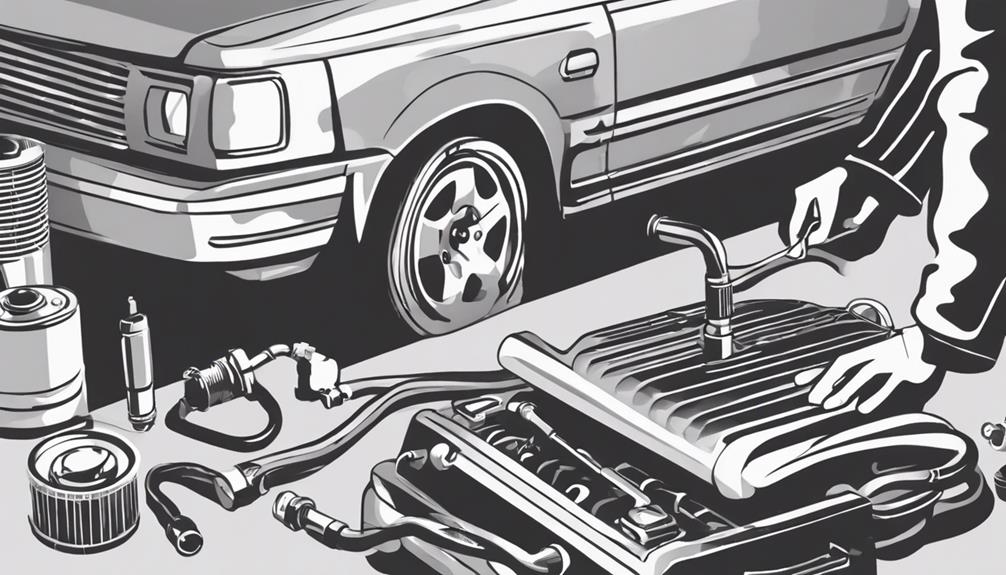
If you're experiencing persistent overheating issues despite regular coolant checks and maintenance, seeking professional advice for your cooling system care is crucial. Professional technicians can provide valuable insights and services to keep your engine running smoothly.
Here are some expert recommendations to ensure your cooling system remains in top condition:
- Coolant Flush: Schedule regular coolant flushes to remove debris and contaminants that can compromise the effectiveness of your coolant. This procedure helps maintain the proper pH levels and prevents corrosion within the system.
- Radiator Inspection: Have your radiator inspected by a professional to check for leaks, corrosion, or blockages. A well-maintained radiator is essential for efficient heat dissipation and overall engine cooling.
- Diagnosing Issues: Skilled technicians can identify and address problems with components like water pumps or thermostats promptly. Early detection of faulty parts can prevent more significant issues down the road.
- Following Manufacturer's Guidelines: Adhering to the manufacturer's recommended maintenance schedule for your cooling system is crucial in preventing overheating. By following these guidelines, you can prolong the life of your engine and avoid costly repairs.
Frequently Asked Questions
How Can I Prevent My Car From Overheating?
To prevent your car from overheating, monitor the cooling system regularly. Maintain proper coolant levels and check for leaks or damage. Keep up with routine maintenance to ensure optimal performance. Avoid pushing the engine beyond recommended limits.
What Is the Best Thing to Do When Your Car Overheats?
When your car overheats, the best thing to do is to pull over immediately, turn off the air conditioning, and switch on the heater. This emergency response helps cool the engine and prevent further damage.
How Do You Take Care of Overheating?
To take care of overheating, ensure your cooling system is maintained. Regularly monitor coolant levels, check for leaks, and confirm the radiator fan functions properly. Don't forget to schedule routine maintenance and follow manufacturer guidelines for coolant type and ratio.
What Helps Prevent Overheating in a Motor?
To prevent overheating in a motor, prioritize regular maintenance. Upgrading cooling system components, monitoring engine temperature, and driving responsibly all contribute to keeping your car running smoothly. Take care of your vehicle to enjoy worry-free drives.
Conclusion
In conclusion, just like how a well-maintained cooling system prevents your car from overheating, regular maintenance of your vehicle symbolizes your commitment to its longevity and performance.
By following the essential tips outlined, you can ensure that your engine stays cool and functions optimally. Remember, taking proactive steps to prevent overheating is key to avoiding costly repairs and keeping your car running smoothly for years to come.

